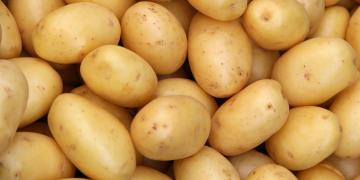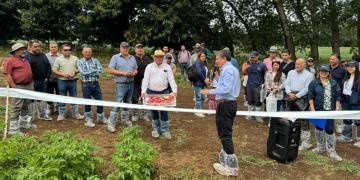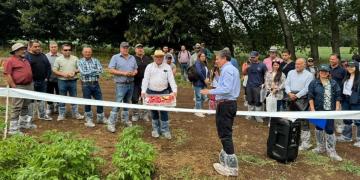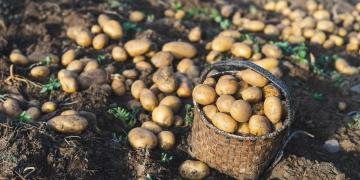Netherlans: Early potato growers are concerned about yields and prices
The first potatoes of the year have now been harvested, and factories have started processing the early potatoes.
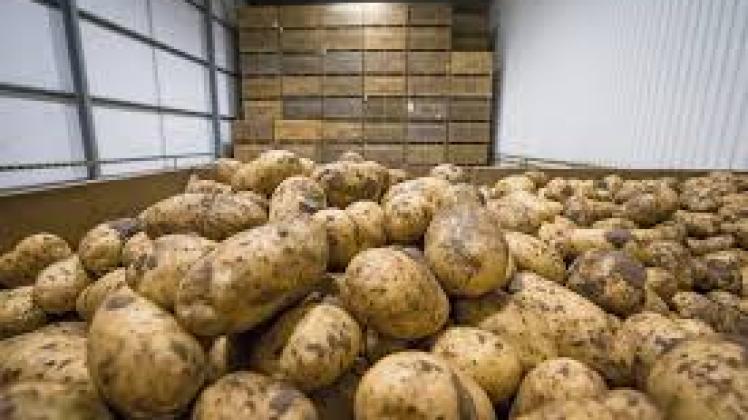
However, there’s concern in the fields: "We’re not seeing peak yields, mainly due to the persistent drought." Concerns are also prevalent on the sales side, after the free market price dropped sharply earlier this year. "I fear for sales, both now and in the coming years. It all happened too quickly."
Low yields due to drought
It doesn’t look like it’s going to be a bumper year for early potato growers. "Where we normally aim for 40 to 45 tons per hectare, we’re currently stuck at around 25 tons. The drought-prone fields are particularly struggling," says Pieter Van Oost of Boerenbond. He believes the lack of rainfall in recent months is the main reason for the disappointing yields.
Van Oost refers to a trial harvest conducted by Viaverda, where yields varied from 17 to 44 tons per hectare. "The average was 34 tons, a mix of fields with and without irrigation," he explains. "The difference between irrigated and non-irrigated fields is currently around 13 tons per hectare, and that difference threatens to increase even further."
These figures are also confirmed in the field. "On the non-irrigated plots, we’re getting about 25 tons per hectare, and on the irrigated plots, it’s about 10 tons higher. But we’re not seeing a top yield," says Stefaan Van Elven, a potato grower in Laakdal. He only grows early potatoes on a small portion of his acreage. "Last week, we sprayed the plots, and next week we’ll start building up the stock." Van Elven sells a large portion of his potatoes through short-chain supply chains.
Jo Vanderbauwhede, an arable farmer in Kruisem, is also seeing production problems on one of his three more drought-prone plots. "The yield there is disappointing, but things are looking good on the other plots," he says.
Price pressure and contract uncertainty
Although yields are variable, many growers are primarily concerned about sales. The price of storage potatoes on the open market has fallen sharply in recent months. Moreover, several buyers unilaterally revised their previously signed contracts downward in the spring. "Sales from the factories are sluggish," says Vanderbauwhede, who fears the entire sector is facing a difficult period. "Perhaps the growth in the potato sector has been too rapid in recent years."
His early potatoes for the short supply chain have now been harvested, but he’s still waiting for market demand for larger volumes. "The factory has indicated they might buy potatoes from the open market by the end of the week." His contract delivery isn’t scheduled until July 20th. Vanderbauwhede supplies Lutosa and Clarebout, who, he says, have already started processing the early potatoes.
More potatoes planted, but no certainty
Although the average yield is disappointing, more was planted this year than last. A preliminary analysis of the collection requests shows a seven percent increase in the total potato acreage. According to a recent survey by Viaverda, the area of early potatoes has increased by approximately four percent.
"More farmers are growing potatoes, but at the same time, the free market price has plummeted," says Van Oost. However, he believes it’s still too early to draw any firm conclusions about sales. "We don’t have a crystal ball, but the fact remains that the high cultivation costs per hectare must be covered."
Hoping for lower production elsewhere in Europe
Van Elven hopes for lower production in Flanders and Europe to balance the market. "We actually need thirty days with temperatures of thirty degrees," he says with a wink. He believes that persistent drought and heat would depress production and support prices.
For now, however, those prayers appear to be unanswered. Heavy rainfall in other parts of Western Europe has actually boosted the cultivation of late and mid-early potatoes. "We are also closely monitoring the situation in other EU member states. So far, we’re not hearing any disaster scenarios, just normal reports," says Van Oost.
Fuente: vilt.be

